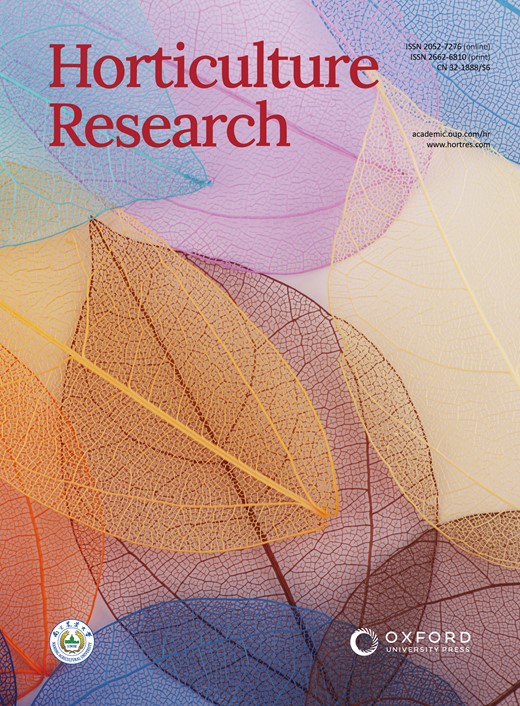Grapevine cell response to carbon deficiency requires transcriptome and methylome reprogramming
IF 8.7
1区 农林科学
Q1 Agricultural and Biological Sciences
引用次数: 0
Abstract
Sugar limitation has dramatic consequences on plant cells, which include cell metabolism and transcriptional reprogramming, and the recycling of cellular components to maintain fundamental cell functions. There is however no description of the contribution of epigenetic regulations to the adaptation of plant cells to limited carbon availability. We investigated this question using non-photosynthetic grapevine cells (Vitis vinifera, cv Cabernet Sauvignon) cultured in vitro with contrasted glucose concentrations. Sugar depletion in the culture medium led to a rapid cell growth arrest and a major metabolic shift that include the depletion in soluble sugar and total amino acids and modulation of the cell redox status. Consistently, flux modeling showed a dramatic slowdown of many pathways required for biomass accumulation such as cell wall and protein synthesis. Sugar depletion also resulted in a major transcriptional reprogramming, characterized by the induction of genes involved in photosynthesis, and the repression of those related to sucrose mobilization or cell cycle control. Similarly, the epigenetic landscape was deeply modified. Glucose-depleted cells showed a higher global DNA methylation level than those grown with glucose. Changes in DNA methylation mainly occurred at transposable elements, and at genes including some of those differentially expressed, consistent with an important role for methylation to the adaptation of cells to limited sugar availability. In addition, genes encoding histone modifiers were differentially expressed suggesting that additional epigenetic mechanisms may be at work in plant cells under carbon shortage.葡萄细胞对碳缺乏的反应需要转录组和甲基组的重编程
糖限制对植物细胞产生了巨大影响,包括细胞新陈代谢和转录重编程,以及细胞成分的再循环,以维持细胞的基本功能。然而,目前还没有关于表观遗传调控对植物细胞适应有限碳供应的贡献的描述。我们利用体外培养的非光合葡萄细胞(Vitis vinifera, cv Cabernet Sauvignon)与对比葡萄糖浓度研究了这一问题。培养基中的糖耗尽导致细胞生长迅速停止,新陈代谢发生重大转变,包括可溶性糖和总氨基酸的耗尽以及细胞氧化还原状态的改变。同样,通量模型显示,生物量积累所需的许多途径(如细胞壁和蛋白质合成)都急剧减慢。糖耗竭也导致了重大的转录重编程,其特点是诱导参与光合作用的基因,抑制与蔗糖动员或细胞周期控制有关的基因。同样,表观遗传学也发生了深刻变化。与使用葡萄糖生长的细胞相比,缺糖细胞显示出更高的DNA甲基化水平。DNA 甲基化的变化主要发生在转座元件和基因上,包括一些差异表达的基因。此外,编码组蛋白修饰因子的基因也有差异表达,这表明在碳短缺条件下,植物细胞中可能还有其他表观遗传机制在起作用。
本文章由计算机程序翻译,如有差异,请以英文原文为准。
求助全文
约1分钟内获得全文
求助全文
来源期刊

Horticulture Research
Biochemistry, Genetics and Molecular Biology-Biochemistry
CiteScore
11.20
自引率
6.90%
发文量
367
审稿时长
20 weeks
期刊介绍:
Horticulture Research, an open access journal affiliated with Nanjing Agricultural University, has achieved the prestigious ranking of number one in the Horticulture category of the Journal Citation Reports ™ from Clarivate, 2022. As a leading publication in the field, the journal is dedicated to disseminating original research articles, comprehensive reviews, insightful perspectives, thought-provoking comments, and valuable correspondence articles and letters to the editor. Its scope encompasses all vital aspects of horticultural plants and disciplines, such as biotechnology, breeding, cellular and molecular biology, evolution, genetics, inter-species interactions, physiology, and the origination and domestication of crops.
 求助内容:
求助内容: 应助结果提醒方式:
应助结果提醒方式:


